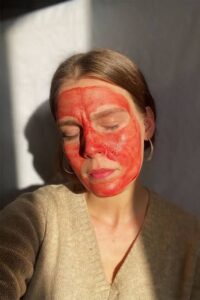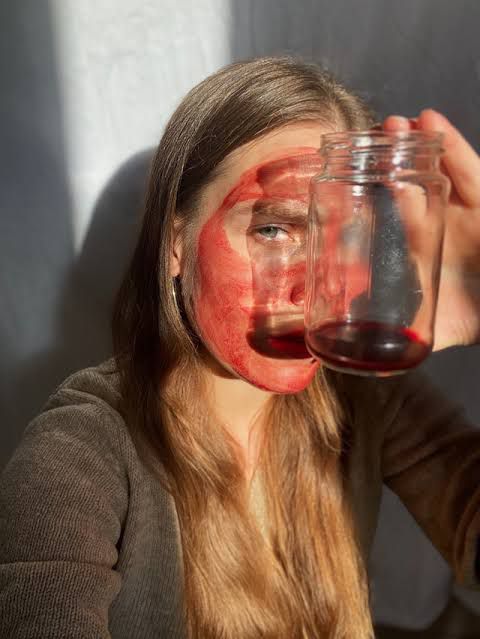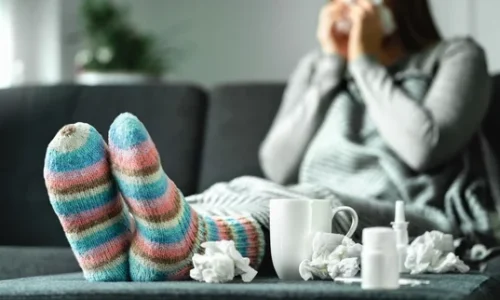- Catherine Maborukoje
- Menstrual Blood, Skincare
- 0 Comments
- 1240 Views
This practice of using menstrual blood as a replacement for facial mask scrubs for glowing faces is fast growing a significant number of traction. They have been around for decades but little did many know the effects of it.
Beauty is the most coveted and conceptual phenomenon in the universe. For women, especially, it is like the throne of a goddess, which every damsel lusts over. The will to win then, births a contest— a contest that can only be won by the most zealous and the most cunning. Being beautiful too has commonly been associated with only facial expressions, as such, many quacks have produced different skincare products believed to cure rashes, smooth skin, and make an individual look more beautiful facially. While being beautiful is not only limited to facial expressions, most of these products made for smooth skin are not always reliable as, for most of them, there’s no significant scientific evaluation backing them up. One of these products is the use of menstrual blood as facial gel or scrub to cure rashes and make faces smooth.
This practice of using menstrual blood as a replacement for facial mask scrubs for glowing faces is fast growing a significant number of traction. They have been around for decades but little did many know the effects of it.
The practice, also known as menstrual masking, involves the use of period blood as a face mask for skincare benefits. It is an unconventional trend and it is also known as “moon masking.”
The popularity of it started on social media platforms like TikTok, with proponents claiming various skincare advantages associated with applying menstrual blood to the face. However, the scientific community and dermatologists have raised concerns about the lack of research supporting these claims and the potential risks involved in using period blood for skincare purposes.

The Origins and Claims of Menstrual Masking
The concept of menstrual masking stems from the belief that menstrual blood contains stem cells and nutrients like zinc, copper, and magnesium, which are purported to aid in skin regeneration and combat skin issues such as acne. Advocates of menstrual masking often highlight the natural and holistic aspects of using one’s bodily fluids for skincare, emphasizing a connection to femininity and empowerment through embracing menstrual blood as a beauty treatment.
Despite the anecdotal testimonials and cultural practices associated with menstrual masking, dermatologists and experts in skincare caution against this trend due to the lack of scientific evidence supporting its efficacy and safety. Menstrual blood, while containing stem cells and nutrients, also comprises uterine tissue, mucus lining, and bacteria, raising concerns about the potential risks of applying it directly to the skin. Dr. Joyce Park, a renowned dermatologist and prominent figure on TikTok, has strongly criticized the current trend on the platform, highlighting its lack of sterility and potential for causing facial infections. Additionally, she warns of the risk of spreading sexually transmitted diseases such as Herpes to the facial area through this procedure. Calling attention to the importance of using proven skincare products and methods that have undergone rigorous testing to ensure effectiveness and safety.

Cultural and Spiritual Significance
Beyond the skincare realm, menstrual masking holds cultural and spiritual significance for some individuals, with practices rooted in traditions passed down through generations. For some, the act of using period blood for skincare is a way to connect with ancestral rituals and embrace the power of femininity and womanhood. These cultural perspectives add layers of complexity to the discussion surrounding menstrual masking, highlighting the intersection of beauty, tradition, and personal beliefs.
The debate surrounding menstrual masking raises important ethical considerations regarding bodily autonomy, informed consent, and the promotion of unverified skincare practices. While individuals have the right to explore alternative beauty treatments, it is essential to approach such practices with caution, critical thinking, and an understanding of the potential risks involved. As the beauty industry continues to evolve, discussions around menstrual masking serve as a reminder of the importance of evidence-based skincare practices and the need for transparency in promoting beauty trends.
While some individuals may find value in exploring unconventional skincare methods like menstrual masking, it is crucial to approach such practices with a discerning eye and prioritize safety, scientific evidence, and ethical considerations.
Read Also: 7 Essential Healthy Habits To Begin In Your 30s











